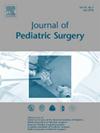优化新生儿术后强化恢复指南的实施
IF 2.4
2区 医学
Q1 PEDIATRICS
引用次数: 0
摘要
本文章由计算机程序翻译,如有差异,请以英文原文为准。
Optimizing Implementation of the Neonatal Enhanced Recovery After Surgery Guideline
Introduction
Enhanced Recovery After Surgery (ERAS®) protocols require multidisciplinary team engagement from healthcare professionals (HCPs), where limited studies exist on neonatal ERAS®protocols. Therefore, we aimed to capture perceptions of HCPs on facilitation and implementation of the neonatal ERAS®guideline.
Methods
10 neonates were recruited. 13 HCPs involved in these patient's care were interviewed and 8 surveyed consisting of pediatric anesthesiologists, neonatologists, neonatal intensive care unit (NICU) registered nurses (RNs), and pediatric surgeons. Using a multi-methods design, recruitment, semi-structured interviews and surveys were conducted from May 17, 2021 to November 1, 2022. Data was coded using The Promoting Action on Research Implementation in Health Studies and then thematically analyzed.
Results
Interviews were conducted with 4 pediatric anesthesiologists, 4 neonatologists, 2 NICU RNs, and 3 pediatric surgeons and surveys with 1 pediatric anesthesiologist, 2 neonatologists, 3 NICU RNs, and 2 pediatric surgeons. From interviews, the top 3 facilitation strategies were utilization of: (1) multidisciplinary guideline champions, (2) reminders and education, and (3) results to facilitate adherence. Incorporation of these strategies resulted in perceived: (1) stronger buy-in and engagement and (2) improved team communication, job satisfaction, care quality, and parental involvement.
Conclusion
HCPs stressed the importance of guideline champions, reminders and education, and results distribution. Given implementation during the COVID-19 pandemic, awareness and education were mixed. Nonetheless, HCPs perceived improved buy-in and engagement, communication, job satisfaction, quality of care, and parental involvement. Incorporation of these strategies can promote successful ERAS® guideline facilitation and implementation and should be considered for future ERAS® projects.
Level of Evidence
IV.
求助全文
通过发布文献求助,成功后即可免费获取论文全文。
去求助
来源期刊
CiteScore
1.10
自引率
12.50%
发文量
569
审稿时长
38 days
期刊介绍:
The journal presents original contributions as well as a complete international abstracts section and other special departments to provide the most current source of information and references in pediatric surgery. The journal is based on the need to improve the surgical care of infants and children, not only through advances in physiology, pathology and surgical techniques, but also by attention to the unique emotional and physical needs of the young patient.

 求助内容:
求助内容: 应助结果提醒方式:
应助结果提醒方式:


